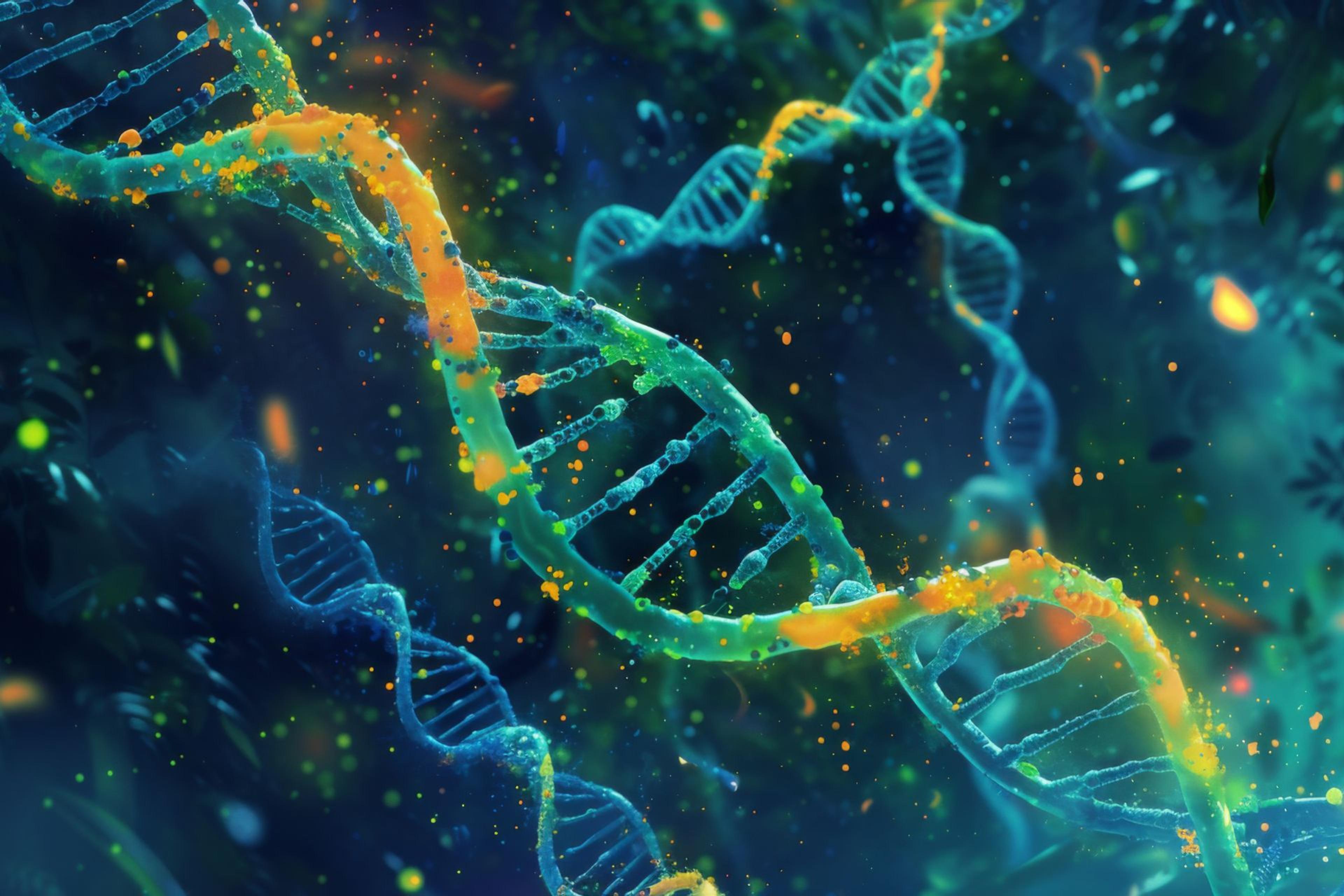
Table of Contents
Free Event

Featuring Isidora S.
Ivy League Ready in 60 Minutes
Starting Saturday, August 30
8:00 PM UTC · 60 minutes

Featuring Isidora S.
Data science is an emerging field that combines computer science, mathematics, and statistical analysis to extract insights and make data-driven decisions. With the demand for data scientists on the rise in industries such as technology, finance, healthcare, and more, it is crucial to equip oneself with the right skills and knowledge to excel in this field. In this article, we will explore the best colleges for data science and discuss why they are considered top choices for aspiring data scientists.
The Best Colleges for Data Science: Introduction
Before we delve into the specifics, let's understand what makes a college stand out in the field of data science. The best colleges for data science not only offer comprehensive curriculum and state-of-the-art facilities but also provide ample opportunities for hands-on learning. These institutions often have partnerships with industry leaders, access to cutting-edge research, and a strong network of alumni who have made significant contributions to the field.
When it comes to data science, it is crucial for students to have a solid foundation in mathematics and statistics. The best colleges recognize this and ensure that their programs include rigorous coursework in these areas. Students are exposed to concepts such as probability, linear algebra, calculus, and statistical modeling, which form the backbone of data analysis.
Additionally, the best colleges for data science understand the importance of programming skills in this field. They offer courses that teach students how to code in languages like Python, R, and SQL, which are widely used in data analysis and machine learning. These programming skills enable students to manipulate and analyze large datasets, build predictive models, and create data visualizations.
Another key aspect that sets the best colleges apart is their commitment to providing hands-on learning experiences. They understand that data science is a practical discipline, and students need to apply their knowledge to real-world problems. These colleges offer opportunities for internships, research projects, and industry collaborations, allowing students to gain valuable experience and make meaningful contributions to the field.
Furthermore, the best colleges for data science often have partnerships with industry leaders. This means that students have access to guest lectures, workshops, and networking events, where they can interact with professionals in the field. These connections can lead to internships, job opportunities, and mentorship, giving students a head start in their data science careers.
Access to cutting-edge research is another advantage that the best colleges offer. They have faculty members who are actively involved in research projects, pushing the boundaries of data science. Students have the opportunity to work alongside these researchers, gaining exposure to the latest advancements and contributing to the field through their own research endeavors.
Finally, the strong network of alumni associated with the best colleges for data science is invaluable. These alumni have gone on to become leaders in the industry, working at top tech companies, research institutions, and startups. They often come back to their alma mater to mentor current students, provide career guidance, and even offer job opportunities. This network of successful alumni is a testament to the quality of education and the opportunities provided by these colleges.
In conclusion, the best colleges for data science go beyond offering a comprehensive curriculum and state-of-the-art facilities. They provide students with a strong foundation in mathematics and programming, hands-on learning experiences, access to cutting-edge research, and a network of successful alumni. These colleges are at the forefront of data science education, preparing students for successful careers in this rapidly growing field.
Data Science as a Career
Before choosing a college, it is important to understand the potential of a career in data science. The demand for talented data scientists continues to grow as companies increasingly rely on data to drive their decision-making process. Data scientists are responsible for collecting and analyzing vast amounts of data, developing models and algorithms, and presenting meaningful insights to stakeholders. With the right skills and knowledge, a career in data science offers lucrative opportunities for growth and advancement.
Data science is a multidisciplinary field that combines statistics, mathematics, computer science, and domain expertise. As a data scientist, you will have the opportunity to work with cutting-edge technologies and tools such as Python, R, SQL, and machine learning frameworks. These skills are highly sought after in various industries, including finance, healthcare, e-commerce, and marketing.
One of the key aspects of a data scientist's role is data exploration and analysis. You will be responsible for identifying patterns, trends, and correlations in large datasets. This involves cleaning and preprocessing the data, applying statistical techniques, and using visualization tools to present your findings. By uncovering valuable insights, you will help businesses make informed decisions and gain a competitive edge in the market.
Another important aspect of data science is the development of predictive models and algorithms. These models are used to make predictions and forecasts based on historical data. For example, in finance, data scientists develop models to predict stock prices or identify fraudulent transactions. In healthcare, they build models to diagnose diseases or predict patient outcomes. The possibilities are endless, and as a data scientist, you will have the opportunity to make a significant impact in various domains.
Communication skills are also crucial for a successful career in data science. As a data scientist, you will often need to present your findings to non-technical stakeholders, such as executives or clients. This requires the ability to explain complex concepts in a clear and concise manner, using visualizations and storytelling techniques. Effective communication is essential for ensuring that your insights are understood and acted upon by decision-makers.
In addition to technical skills, a data scientist should also possess strong problem-solving and critical thinking abilities. You will encounter complex and ambiguous problems that require creative solutions. Being able to think analytically and approach problems from different angles will help you develop innovative strategies and overcome challenges.
Furthermore, continuous learning is a fundamental aspect of a data scientist's career. The field of data science is constantly evolving, with new techniques, algorithms, and tools being developed. To stay ahead of the curve, you will need to keep up with the latest advancements and continuously update your skills. This can be done through online courses, workshops, conferences, and networking with other professionals in the field.
In conclusion, a career in data science offers a world of opportunities. With the increasing reliance on data-driven decision-making, the demand for skilled data scientists is only expected to grow. By acquiring the necessary skills and knowledge, you can embark on a rewarding career that allows you to make a significant impact and contribute to the success of businesses across various industries.
Should You Choose Data Science as a Major
Deciding on a major is a significant step towards shaping your career path. If you have a passion for problem-solving, a love for numbers, and an interest in technology, data science might be the perfect fit for you. However, it is essential to consider your strengths, interests, and long-term goals before committing to a major. Data science requires a strong foundation in mathematics, statistics, and programming, along with excellent analytical and problem-solving skills.
Data Science Major Requirements
Each college has its own set of requirements for the data science major. However, most programs typically involve a combination of coursework in computer science, mathematics, statistics, and data analysis. Students can expect to take classes in programming languages like Python or R, data mining, machine learning, statistical modeling, and data visualization. Additionally, some colleges may offer opportunities for internships, research projects, or capstone experiences to further enhance students' practical skills.
The Top Colleges for Data Science: Acceptance Rate, Program, Curriculum
When it comes to identifying the top colleges for data science, several factors come into play. Admission rates, the strength of the program, faculty expertise, and the comprehensiveness of the curriculum all contribute to an institution's ranking. Some of the top colleges for data science include:
Massachusetts Institute of Technology (MIT)
MIT offers an exceptional data science program with access to cutting-edge research and a strong emphasis on hands-on learning. The interdisciplinary curriculum combines computer science, mathematics, and statistics, ensuring students receive a well-rounded education in the field.
Stanford University
Stanford's data science program focuses on a multidisciplinary approach, integrating coursework in computer science, statistics, and domain-specific knowledge. With renowned faculty and state-of-the-art facilities, Stanford prepares students for success in the rapidly evolving field of data science.
Harvard University
Harvard's data science program provides students with a solid foundation in computer science, statistics, and data analysis. The curriculum emphasizes both theoretical understanding and practical application, preparing graduates to tackle real-world data challenges.
Carnegie Mellon University
Carnegie Mellon University offers a comprehensive data science program that combines coursework in computer science, statistics, and machine learning. Students have the opportunity to work on real-world projects through internships or research collaborations with faculty members.
University of California, Berkeley
UC Berkeley's data science program focuses on developing students' technical skills alongside critical thinking and problem-solving abilities. The curriculum covers topics such as data visualization, database management, and data ethics, ensuring graduates are well-rounded data scientists.
Best Colleges for Data Science: Final Thoughts
Choosing the right college for data science can significantly impact your future career prospects. The best colleges offer a combination of academic rigor, practical experience, and networking opportunities, preparing students for success in the field. However, it is crucial to consider your personal goals, learning style, and financial constraints when making this decision. Remember, the best college for data science is ultimately the one that aligns with your aspirations and provides the resources necessary for your growth as a data scientist.
By considering factors such as curriculum, faculty expertise, and industry partnerships, you can make an informed decision when choosing the best college for data science. With the right education and training, you can embark on a rewarding career, contributing to the advancement of data science and making a significant impact in various industries.
Need help deciding which data science program is right for you, or strengthening your application to a top school? Work with a top college admissions coach who specializes in data science admissions. Whether you're comparing programs or prepping your personal statement, our expert mentors can guide you every step of the way.
FAQs
What is the difference between a B.A. and a B.S. in Data Science?
- A Bachelor of Arts (B.A.) in Data Science typically offers a broader liberal arts education with more electives in humanities and social sciences. In contrast, a Bachelor of Science (B.S.) focuses more on technical and scientific coursework, including advanced mathematics, computer science, and statistics.
Can I double major in Data Science and another field?
- Yes, many universities allow students to double major. Common combinations with Data Science include Computer Science, Statistics, Economics, and Business. However, requirements vary by institution, so it's essential to consult academic advisors to plan appropriately.
What minors pair well with a Data Science major?
- Complementary minors include Mathematics, Computer Science, Business, Economics, and Psychology. These can enhance your understanding of data analysis in various contexts and improve job prospects in specialized fields.
Do Data Science programs accept AP or IB credits?
- Some programs accept Advanced Placement (AP) or International Baccalaureate (IB) credits for introductory courses, particularly in calculus or statistics. However, policies differ among institutions, and some may not accept these credits for core major requirements.
What kind of computer do I need for a Data Science program?
- A computer with a multi-core processor (i5/i7 or equivalent), at least 8GB of RAM (16GB recommended), and sufficient storage (SSD preferred) is advisable. The ability to run programming environments like Python, R, and data analysis tools is essential.











